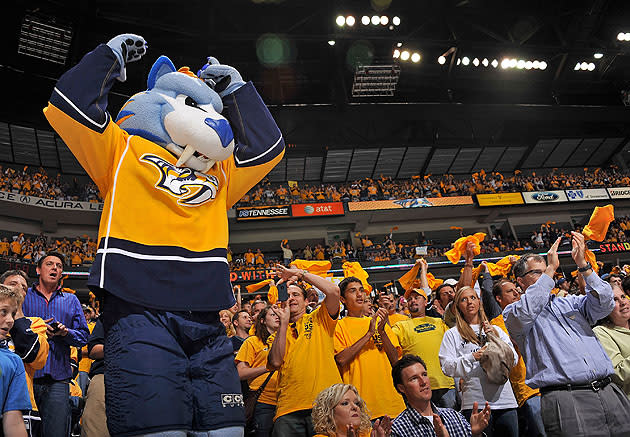Should the NHL contract to 20 teams?
Back in 2008, Yahoo! Sports NHL writer Ross McKeon suggested that the League should contract some teams; and by "some teams", he meant the entire Southeast Division.
The idea was blasted by Washington Capitals owner Ted Leonsis, and I still agree with him: You don't create new hockey fans by abandoning markets or retreating to safer, "traditional" havens out of fiscal desperation.
The contraction debate for the NHL always leads to hypocrisy and shortsightedness, as well as to the lazy demonization of still-gestating markets in the U.S.
Tom Van Riper of Forbes.com covers hockey now and again, and claims the NHL's best hope for sustained success is to contract to 20 teams.
The most obvious example is the Sunbelt strategy — a concept that pre-dates Bettman — that's moved teams into Florida, Arizona, North Carolina and California. The plan has failed. So has expansion into other non-traditional markets like Nashville and Columbus. Three teams in the New York area seems like overkill, too, given that only one is enjoying much financial success.
With the exception of the L.A. Kings, who get by on the sheer size of their market, "The Sunbelt teams just have no significant ticket revenue and no significant television revenue," says [Roger Noll, a Stanford University economist].
… In the seven seasons the league has played since the previous lockout, six franchises — the New York Islanders, Nashville Predators, Florida Panthers, Phoenix Coyotes, St. Louis Blues and Columbus Blue Jackets — have suffered operating losses in every one of them. The Carolina Hurricanes lost money in all but one season, the San Jose Sharks in all but two.
He also lists the Tampa Bay Lightning, Anaheim Ducks and New Jersey Devils as the other teams struggling. That's 11 teams; let's just assume that the Blues would be spared the axe, and that could be your 10-team reduction right there.
Again, the broad brush of contraction is maddening. Would anyone argue that the Predators don't have momentum both at the gate and on television right now? Or that the Hurricanes and Lightning have established fan bases, albeit ones that need a little more incentive to get into the building than folks in Toronto (like winning)?
(And speaking of Toronto: The idea that you'd contract before you relocate is preposterous.)
But again, that's why the contraction debate is a shortsighted one. Ask the question three years ago, and the Predators are under the guillotine blade. Now? Hell no. They are to the contraction debate as Loui Eriksson is to the underrated player debate: an outdated cliché.
Maybe it's Phoenix, with stable ownership, that's off the chopping block in five years. Or Columbus, if it's able to match its total franchise playoff appearances by some happenstance. Maybe the burgeoning young stars of the Florida Panthers give those fans something to rally around for several seasons.
Or maybe I'm just a jingoistic American hockey optimist.
The real test for the contraction theory can be summed up with three letters: N-B-C.
It's been Gary Bettman's contention since forever ago that the NHL's foray into "non-traditional markets" are the reason the League was able to strike a monster (at least in term) contract with NBC. Reduce that League to 20 teams — seven of them in Canada — and would the NHL receive the same interest from a network like NBC?
I don't like contraction. I think it's a white flag for the NHL at a time when the League's on-ice action, reach to the casual fan and momentum in "non-traditional" markets has never been stronger. Well, at least that was the case before the lockout.

 Yahoo Sports
Yahoo Sports 


